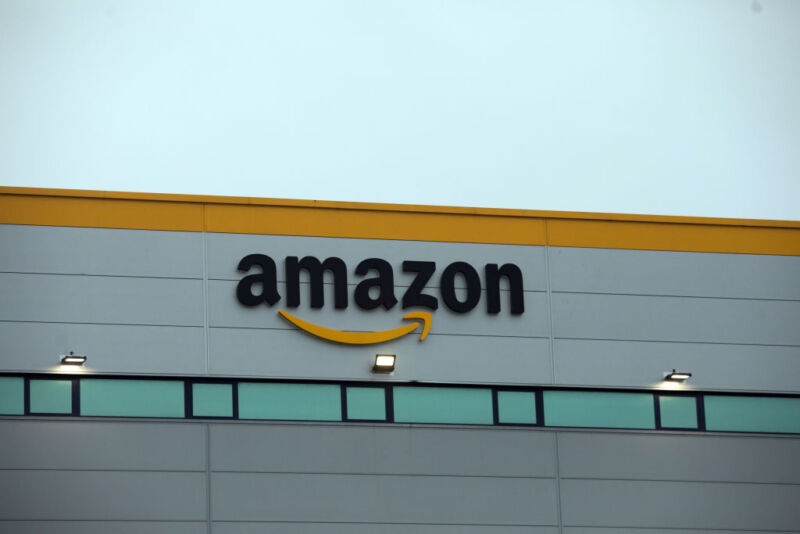
Amazon is again under fire for its policies allegedly forbidding its online retailers from selling their products for lower prices on other websites and retail platforms. Critics say this has led to years of higher prices for consumers instead of allowing markets to determine fair prices.
Last year, the District of Columbia sued Amazon for the same reason and lost in court in March 2022. But then in April, the Department of Justice issued a statement in support of DC’s case, and shortly after, DC filed to appeal this August. Now, California attorney general Rob Bonta has piled on more pressure, announcing a lawsuit against Amazon for allegedly blocking price competition in California, too.
Previously, an Amazon spokesperson told Politico, regarding the DC lawsuit, that “sellers set their own prices for the products they offer in our store.” The spokesperson suggested that without Amazon’s commitment to highlighting competitively priced items above others, prices in the market would go up, not decrease as critics suggest.
Today, an Amazon spokesperson provided Ars with a similar statement about the new case.
“Similar to the DC Attorney General—whose complaint was dismissed by the courts—the California Attorney General has it exactly backwards,” Amazon’s spokesperson said. “Sellers set their own prices for the products they offer in our store. Amazon takes pride in the fact that we offer low prices across the broadest selection, and like any store we reserve the right not to highlight offers to customers that are not priced competitively. The relief the AG seeks would force Amazon to feature higher prices to customers, oddly going against core objectives of antitrust law.”
Bonta disagrees with Amazon. He said in his press release that Amazon’s “agreements thwart the ability of other online retailers to compete, contributing to Amazon’s dominance in the online retail marketplace and harming merchants and consumers through inflated fees and higher prices.”
“The reality is: Many of the products we buy online would be cheaper if market forces were left unconstrained,” Bonta said. “With today’s lawsuit, we’re fighting back.”
His lawsuit filed today asks the San Francisco Superior Court to issue an order that “stops Amazon’s anticompetitive behavior and recovers the damages to California consumers and the California economy.” Beyond just prohibiting Amazon from anticompetitive practices, Bonta wants Amazon to “compensate for the harms to consumers through increased prices”—an amount that has yet to be determined.
A California Department of Justice spokesperson told Ars that the amount “will be determined by the court, but the harm we’re alleging is significant. To think about the size, you may want to consider what it means if every Californian has paid even just a little more for every product they purchased online over the span of a decade.”
How is California’s case different than DC’s?
Bonta posted the new complaint lobbed against Amazon, which suggests that because nearly 75 percent of consumers go directly to Amazon for all online purchases, merchants have no choice but to sell on Amazon.
But because retailers alleged that the cost of selling items on Amazon is higher than on other platforms, including their own websites, Bonta said the terms of retailer agreements with Amazon limit their ability to sell items at a lower cost on platforms with lower seller fees. Bonta cited an e-commerce consultant who confirmed retailers could sell items for lower fees on sites like Walmart or eBay. The result is a scenario where consumers are denied opportunities to access products at cheaper rates.
At the furthest extreme, Bonta said that if Amazon catches retailers breaking the agreement, retailers can face sanctions, like decreased visibility of their items in product search results “and even the possibility of termination or suspension.”
The DOJ is apparently on Bonta’s side. In its statement of support to reopen DC’s case against Amazon, the DOJ said that the DC Superior Court erred in its judgment dismissing the case, partly because DOJ said it relied on inapplicable case law. “If left uncorrected, the Court’s ruling could jeopardize the enforcement of antitrust law,” DOJ warned.
Not inserting its own judgment, DOJ recommended the DC court reconsider whether DC met its burden to prove that Amazon’s retailer agreements are unreasonable.
Six months ago, Amazon seemingly cleared this hurdle, but this next round of legal battles could prove more challenging, especially with the DOJ and another state’s legal team involved. As DC kicks off its appeal process, Bonta, in today’s filing, asked the San Francisco Superior Court for a jury trial.
“We hope that the California court will reach the same conclusion as the DC court and dismiss this lawsuit promptly,” Amazon’s spokesperson told Ars.
https://arstechnica.com/?p=1881446

